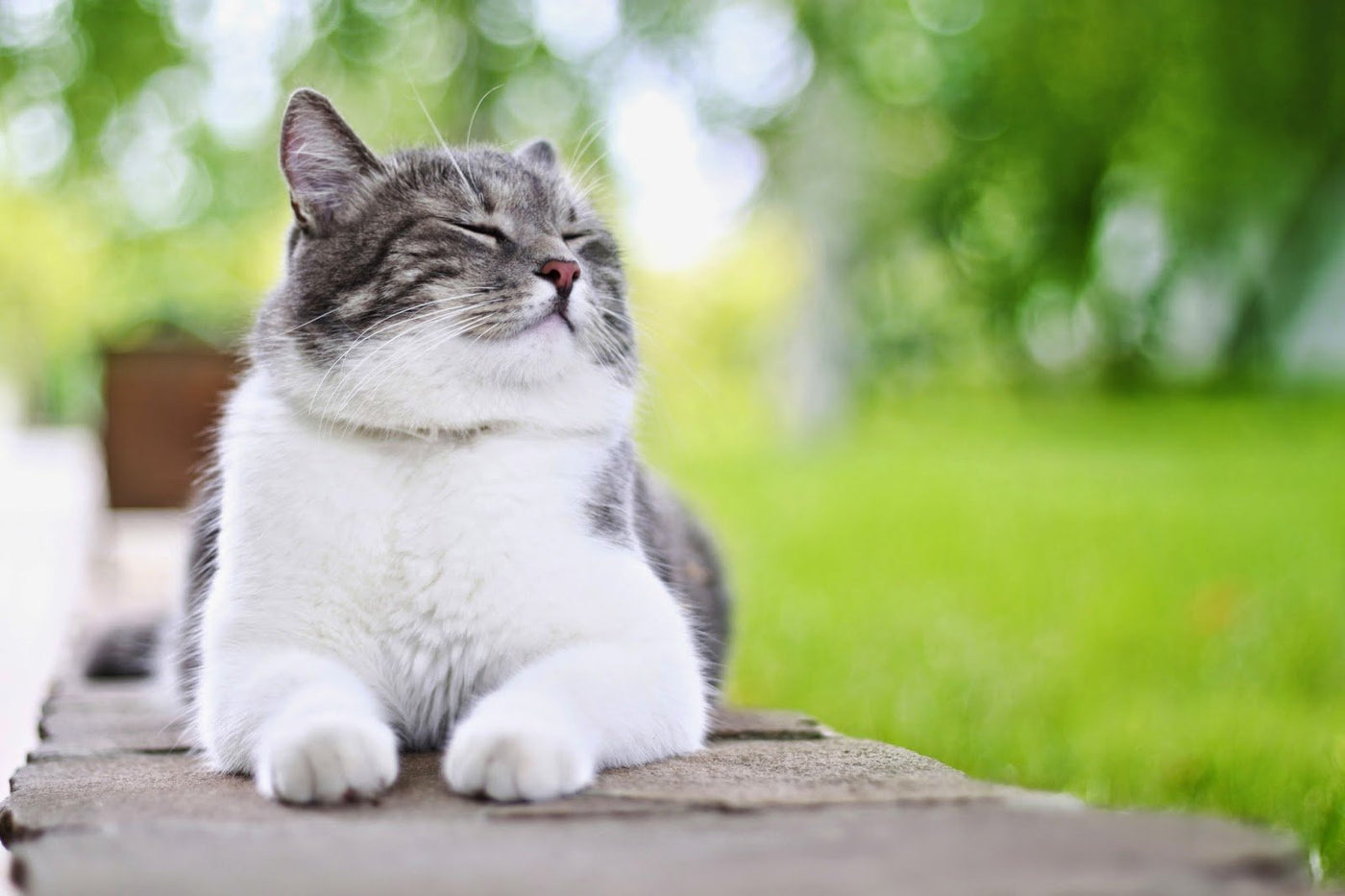
Take a deep breath. Meowwww. Feels good? Now imagine not being able to breathe that well. Oh, it’s terrible. If your cat (especially of Siamese or Korat pedigrees) has been diagnosed with feline asthma or bronchitis, this article is for you. Here is your introduction to feline bronchial asthma.
Background INFORMATION: About Anatomy
First, it’s important to brush up on our anatomy before we get into understanding why our beloved cats keep having breathing issues. The process of breathing involves air coming in through the nasal passage and mouth, down through the trachea, into the bronchi, then spreading into the bronchioles. The bronchi are the extensions of the trachea that connect to the lungs. Whereas the bronchioles are tiny, fine extensions of the bronchi that connect to the alveoli sacs within the lungs.
There are many, many reasons why your kitty may be getting asthma and bronchitis but the most common chronic reason is often due to the inhalation of allergen. However, other known causes include bacterial, viral and fungal infections. When an allergen is inhaled by your cat, her body will begin creating antibodies to fight out that specific antigen.
An antigen is simply a molecule that is part of the foreign body (in this case allergen). When an antigen enters the body it triggers your cat’s immune system to create antibodies against that antigen.Thus, based on this knowledge we now know that Feline Bronchial Asthma is a respiratory disorder that is caused by immunosensitivity.
As this mucus builds up, the diameter of the airway slowly begins to decrease. This is when things tend to get a little hard for your kitty and it's when clinical signs such as dyspnea and shortness of breath may occur. Remember, the bronchioles are the tiny pathways that air takes through the alveoli (site of gas exchange).
When mucus builds up, then these pathway become clogged and so a cat will not be able to efficiently inspire and expire air into and out from its lungs. This will then lead to them taking more frequent breaths in order to get enough oxygen into their lungs.

Asthma Vs Bronchitis
Asthma and Bronchitis go hand-in-hand with each other and together are often referred to as Bronchial Asthma. However, if defined individually, asthma is a condition where the immune system produces a rapid inflammatory response that results in the over secretion of mucus and narrowing of the airways due to an inhaled allergen. Bronchitis is simply described as the irritation, wheezing, and inflammation that will occur around the trachea and bronchi due to a specific allergen.
Who is at risk for for feline asthma?
Asthma and bronchitis can occur in any cat breed, age or gender. However, it seems to be more common in older cats between the ages 6 to 9. Recent genetic evidence that examined 8175 cats studied the prevalence and genetics of over 227 diseases most commonly seen in cats. Their data demonstrated that from 8175 population, 23% of cats particularly the Siamese and Korat breeds were diagnosed with diseases of the upper respiratory tract. Where 19% of the population, were diagnosed with asthma.
The study concluded by suggesting that asthma and upper respiratory diseases were likely an inherited disorder most common to the Korat, Siamese, Balinese, Oriental and Birman cat breeds. Furthermore, a cat that shares common ancestry with the Siamese and Korat are predisposed to asthma.
Symptoms
If your cat has asthma along with chronic bronchitis then these common symptoms are likely to occur:
- Dyspnea
- Fever
- Anorexia
- Rapid breathing
- Shortness of breath
- Increased respiration rate
- Abnormal lung sounds when auscultating the lungs
- Abnormal sounds in the upper airways
- Severe coughing
- May sneeze and begin gagging a lot more
Diagnosis
The next important step your vet will take is figuring out what exactly is causing your cat to show the list of specific sigs. First, your veterinarian will conduct a full physical exam, along with a brief history collection. Secondly, your veterinarian will likely take a few radiographs of the thorax in order to get an idea of what’s going on in your cat's airway.
Other possible diagnostic aids your vet may consider is a technique known as Bronchoscopy. This is a simple procedure where a long, flexible camera is passed down into the trachea and into the bronchi whilst your cat is anesthetized. This allows your veterinarian to examine the upper respiratory tract and inflammatory cells directly.
Treatment
Asthma is very often is considered chronic, your veterinarian will likely prescribe therapy options such as inhalation therapy, corticosteroid, bronchodilators, and antibiotics. Inhalation therapy is the most common way to treat asthma, it simply involves owners allowing their cats to take a few breaths of through an inhaler. Corticosteroids are used to reduce inflammation within the airway tracts. Bronchodilators are used in conjunction with corticosteroids in order to decrease the clinical signs. Antibiotics may be used should your cat test positive for a bacterial infection.
Is there are cure?
Although there is no known cure for this condition, cats can still live their happy, playful life when their pet parents administer proper therapy to reduce clinical signs.
Do you have a fur baby who might have asthma? Think your exotic Siamese may be a carrier? Drop us a line!
Sources:
- https://www.ncbi.nlm.nih.gov/pmc/articles/PMC5002895/
- https://vetfolio-vetstreet.s3.amazonaws.com/mmah/fa/37c13e285d4d1da9d6da316927bafd/filePV_27_06_418.pdf
- https://icatcare.org/advice/cat-health/asthma-cats
- http://www.vin.com/apputil/content/defaultadv1.aspx?meta=Generic&pId=11196&id=3854186
- http://vetmed.illinois.edu/courses/imaging_anatomy/feline/thorax/ex03/ex03.html
- https://vcahospitals.com/know-your-pet/asthma-and-bronchitis-in-cats



